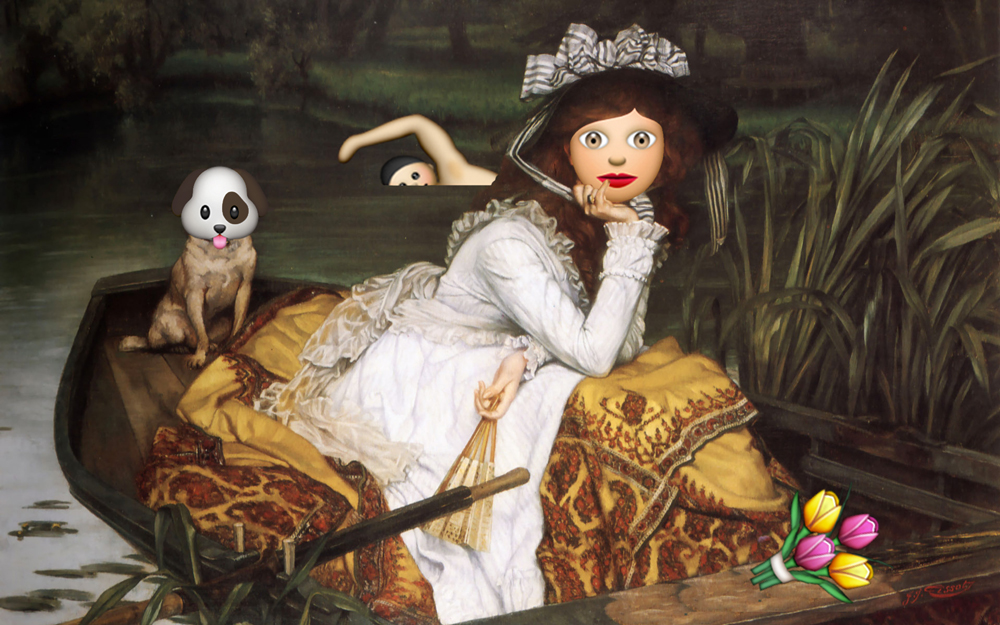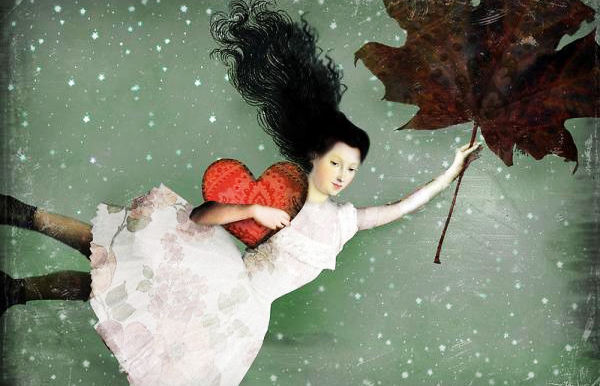empathy
Are The New Facebook Emojis Really Helping Us Express Our Feelings Better?

I remember how at twelve, we’d pass notes in class, in minute handwriting so as to cram as much gossip as we could into a five by five square inch of paper torn out from old notebooks.
My best friend and I had a ritual. We’d make little paper boats and leave messages for each other, and hide them away into textbooks and pencil boxes. The easy excitement of finding a misshapen note in the middle of a drab math lesson was probably what kept me from falling asleep a lot of times.
School ended and suddenly, everyone had cell phones. No one messaged saying “Hey, how are you?” anymore. Instead it was a “Ssup m8 hws u?” Keeping up with the newly established texting norms was a daunting task for me – a nerdy kid famous for her essays and infamous for her prissiness. It makes me want to hide under a mound of blankets right now, and I hate to admit it : but I used the same lingo. Or tried to. Grammar crept in, because my rule-adhering brain raised very valid questions. For example, the use of “u” in place of “you” was something I’d allow for, but what the absolute lack of punctuation, which was another rule of texting bewildered me when people sent me messages such as these :
ur mum cld 2 say ur 2 lazy so iv 2 brng bread
..Come again? You’re mum, or your mum? My two lazy what? I have to bring bread, or to bring bread too, meaning you’ve bought some bread already?
Mercifully, in a few years, the next cool thing to do was to point out grammatical errors in other people’s social media updates and to thoroughly shame them for it. This was fine by me. Until WhatsApp updated itself and unleashed a maelstrom of emoticons that were of absolutely no consequence to texting.
I mean, if I had a red heart in my symbol list already, why would I also want a sparkly pink heart, a green heart, a blue heart and a heart that resembled a pincushion with an arrow poking out of it? Why would I want to spend an additional ten seconds searching for a blue box with the word OK! written inside it, when I could just type okay?
Then came Viber and with it, a plethora of fans who proudly announced they could now have entire conversations through the mood stickers. Facebook seemed to be the only place where you had to type out complete sentences in order to communicate your feelings. How tragic, right? When they introduced pusheens, the fat cat emoticons, I loved them, albeit only because I like cats to begin with. Now though, Facebook prompts me to “Download Mugsy, Finch and the Minions” to express my emotions, because saying I’m excited doesn’t suffice unless it is accompanied by an animated dog, frantically jumping up and down.
What’s even more disturbing is the fact that so many of the seemingly sensible adults are cottoning on to this trend. I see status updates like “celebrating wedding anniversary, eating and drinking @TheSteakHouse – feeling hungry.” To emphasize this, there’s a small emoticon, wearing a smile fit for someone high on meth, with a knife and fork on either side of its face. Forgive me for thinking you were not really hungry and were eating just for kicks, dear Facebook friend.
I’m not averse to emoticons, quite on the contrary. I love kisses and hearts and smiley faces. I’d love a dislike button to use against the uninformed opinionated idiots who choose to make their incompetence public on Facebook. But the concept of an emoticon for every mood is absolutely ridiculous. There are far too many people whose self esteem depends on the number of likes they get on their photos and posts. There will now be a whole generation of people who sit with bated breath as their Facebook window refreshes, wondering how many wows they are going to get for their shiny new laptops and whether or not the person who said “sad” is sad about their choice of laptop or just jealous.
On a serious note, we live in the future. Just look at the advancements we’ve made. Our ancestors painted and carved hunting scenes and squiggly faces into the walls of caves, and here we are, with flat screen computers and free Wi-Fi areas, communicating with each other across several time zones and continents, saying things of monumental importance…with the help of refined, high resolution squiggly faces.
-feeling confused
Images via emojinalart.com
—
Tanvi Deshmukh is a nineteen year old girl from Pune, India, with an affinity for words and books, cats and coffee, Nepalese food and hippie music, and the colour green (along with Oxford commas). Currently pursuing her undergraduate degree in English, she loves poetry, volunteers at an NGO and plays the keyboard in her free time. Along with devouring books of all kinds, unless of course, she’s in the middle of heated discussions on feminism, patriarchy, gay rights, or what to name the neighbour’s new dog.
Be the first to write a comment.
Your feedback


